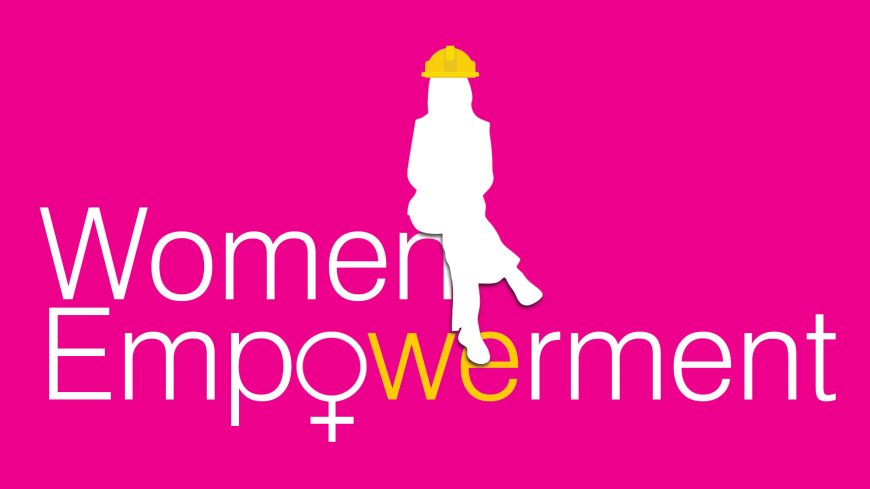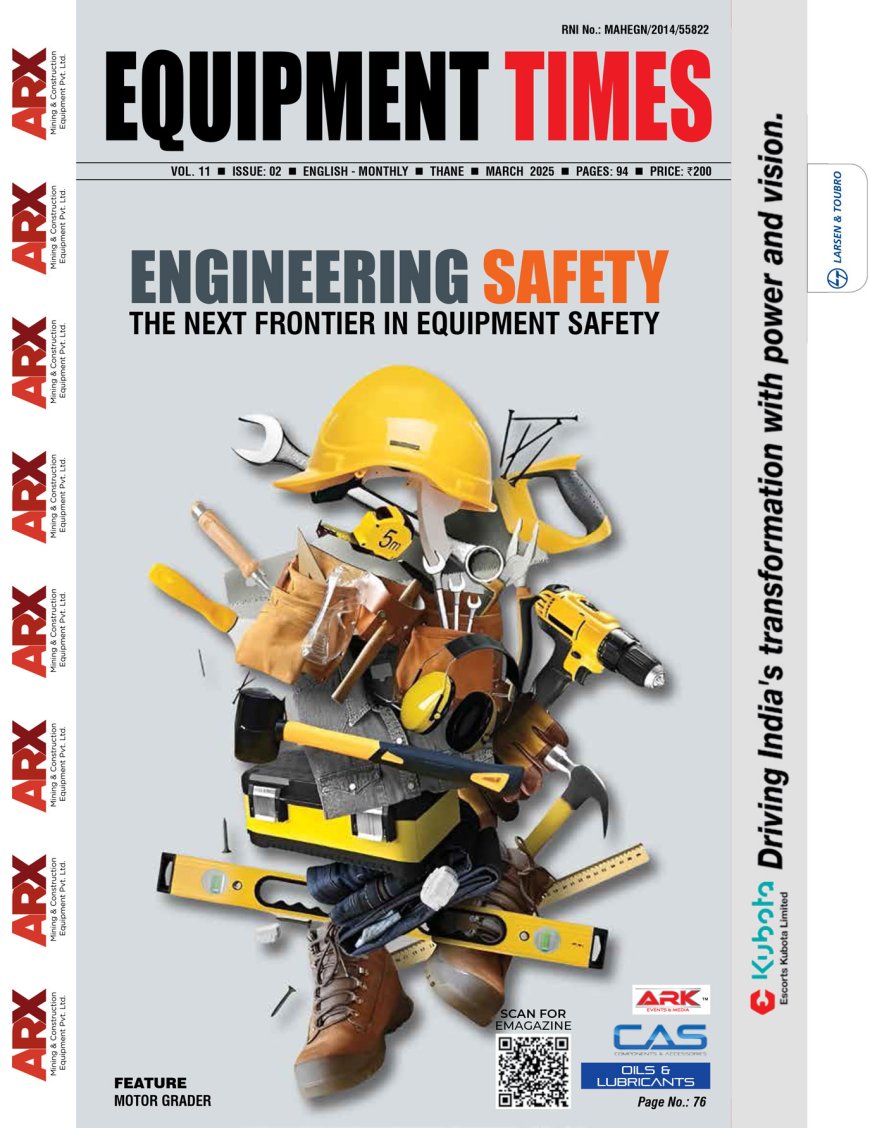Women Empowerment!
Women Empowerment! With changing dynamics, we are seeing more women in construction, smaller pay gaps and increased opportunities for growth. With more women in leadership roles, the doors for women throughout the industry are being pushed wide open. Equipment Timeslooks

Women Empowerment!
With changing dynamics, we are seeing more women in construction, smaller pay gaps and increased opportunities for growth. With more women in leadership roles, the doors for women throughout the industry are being pushed wide open. Equipment Times looks into the company’s vision on gender diversity, journey of women breaking barriers in the construction equipment industry, major roles assigned to women, safety and quality working environment and ratio of women employees in the Construction Equipment sector.
The construction workforce is changing and evolving in many positive ways. Most importantly, it is actively embracing diversity and technology. The construction and heavy equipment industries have typically been male-dominated workplaces, but that’s beginning to change too – on the frontlines at construction sites and behind the scenes at large construction-related and heavy equipment companies. More women than ever are helping to ‘run the show,’ as it were, in roles from CEOs and IT managers to customer service reps and equipment operators – and everything in between.
Women in equipment have entered the profession from different routes. Some worked in adjacent industries such as automotive while others have known people in equipment and encouraged them to pursue their interest.
Where Are We Headed?
The continued skilled labor shortage continues to be a factor in the way that companies are recruiting and hiring new employees. As this trend continues, more hiring managers are looking to attract and hire a more diverse workforce. Today, construction equipment companies hire women in various roles and responsibilities ranging from trade jobs to heavy machinery operations and construction management.
Numbers are continuing to rise as more and more women are joining the trades. Looking to the future, many see even more opportunities in the industry and enjoy the variety of work and impact it makes.
Currently, according to the U.S. Bureau of Labor Statistics, women comprise only 10.3% of the construction industry workforce. But with the growth of construction projects across North America, the need to fill positions is also helping drive companies to recruit a more diverse workforce, and shift the gender imbalance so that women are more equally represented.
With changing dynamics, we are seeing more women in construction, smaller pay gaps, and increased opportunities for growth. If you want to get a job in this field, you need to build your skills and knowledge. There are many apprenticeship, scholarship and state-funded programs available today to help more women enter the construction trades.
An Indian Perspective
It is observed that women have a role to play in the construction industry and that they can build successful careers within the sector. However, it is not easy to work in this industry in liu of given the various barriers to entry such as gender-based discrimination against them, the harsh work environment of the construction site, the lack of sufficient knowledge about the industry itself and the shortage of successful women in construction as role models. It is hoped that it will stimulate debate about how the low representation of women in construction can be addressed and how construction careers for women can be promoted and encouraged and that the resource pool will be enlarged given the prevalent acute skills shortage in the industry.
Social Responsibility
To encourage women’s participation in all areas of operations in the plant, various women-friendly policies and initiatives in the Construction Equipment sector has helped see more women marking their presence felt on the shop floors. The CSR initiatives by companies are categorised under four broad heads – skill development, education and literacy, rural development, and healthcare by various construction equipment companies.
Several corporate and legislative policies have been introduced over the past few decades to increase the number of women in the sector. To ensure fair pay and advancement, legislation on equality and diversity have been implemented. Stereotypical ideas of what represents femininity play a part in women’s perceptions of not truly belonging in the construction sector.
Gender Diversity Is A Necessity
Women’s increased involvement in the construction industry has been recognized as an important factor not only to address a labour shortage in the industry but also to encourage equity and productivity. Despite attempts to hire more women, the industry continues to be one of the most gender-segregated in the world. To change the status quo, more gender awareness has been described as essential.
To create a better situation within the industry, greater gender diversity is a necessity. There are many opportunities for women in the construction business. A deeper examination, however, reveals that women who join the field face gender-biased perceptions, sexism, and unreasonable demands.
Women Bring Specific Strengths
As heavy equipment operators, women have always been recognized as having easily identifiable strengths.
Learning ability: As more rule-abiding and keen to learn, women can show greater learning ability than men.
Consistency: When enrolling in a training program, women are more likely to show up for classes regularly than men.
Attention to detail: Women tend to have an eye for detail, greater than their male counterparts, who often slip up on their overconfidence.
Attitude and Employability: Women are hard working regarding their jobs. In a man’s field where they are offered lesser pay and credit, they strive to outshine men by keeping a diligent attitude towards their work.
Additional training programs and support and help place more women in construction jobs, such as heavy equipment operators. The National Association of Women in Construction and its annual conference, provide mentorship, marketing, and networking opportunities to help women new to the construction and/or heavy equipment operation industries.
Hits: 7










